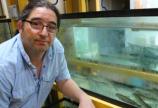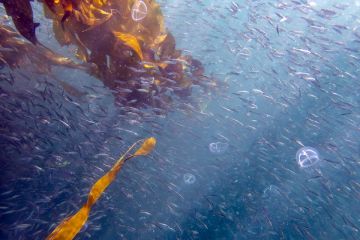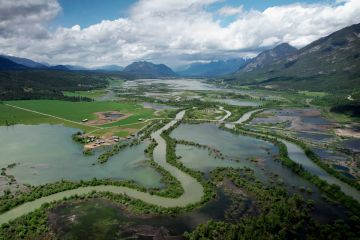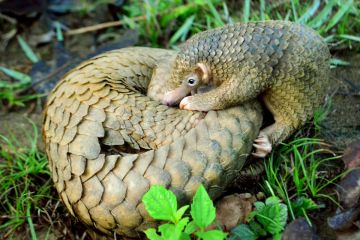Fish Sounds: What fish could tell us, if only we’d listen
- Roxane Kelly
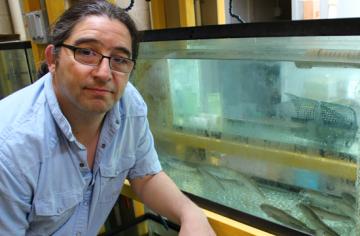
While many of us are familiar with whales’ songs, one UVic researcher has focused his attention on lesser-known aquatic acoustics. Dr. Francis Juanes, a fisheries ecologist in the Department of Biology, is examining fish behavior by using his ears.
Juanes explains that although fish are quieter than whales, “Many, many fish make sounds during reproductive periods, particularly the males. We think it’s a way to attract mates.” Juanes’ previous hydrophone use on the Hudson River in New York allowed his team to identify an invasive fish species that did not belong. “We knew it was there because we could hear it before anyone had seen it.”
Juanes cautions that fish and whales are not the only species making noise underwater. An increase in human interference, including noise from shipping traffic and marine construction, has a profound influence on the natural marine environment, the aquatic soundscape. He warns this may impact fish well-being—both by causing short-term injuries and long-term behavioral changes. Juanes hopes that analyzing soundscape ecology might reveal insights into changing fish habitat use and distribution range with the potential to restore declining fish stocks. In order to study the effects of human impacts and climate change, he needs first to establish baseline data from which to draw comparisons.
Juanes joined UVic in September after 18 years at the University of Massachusetts Amherst. Although he has studied and taught at several universities across Canada and the United States including SFU and UBC in Vancouver, this is his first time living in Victoria. He notes the proximity to Bamfield Marine Sciences Centre and facilities in Washington State as part of the appeal of UVic, and that the VENUS and NEPTUNE cabled undersea laboratories may provide opportunities for audio and video recording fish in the coastal and deep ocean.
Juanes’ appointment as the Liber Ero Chair for Fisheries Research will include studying the effects of climate change on fish populations Of particular interest to him are harvested species including shellfish. He depends on commercial fishing boats as well as academic research vessels to complete his fieldwork.
His previous experience studying salmon may help him identify possible threats facing BC’s fishing industry. For many years, during annual visits to his native Spain, Juanes has had the opportunity to study a small but sustainable population of wild Atlantic salmon. He explains he will not use hydrophones to monitor salmon around Victoria because, “salmon aren‘t particularly vocal. But the predictive return to their natal rivers gives us a good idea of population numbers.”
“Almost all plants and animals we eat are farmed, so many fish species are really the last wild harvest we have left.” Juanes worries how a growing worldwide dependence on farmed fish could impact the larger marine ecosystem. He says regulations poised to protect one species can have disastrous effects on another if not closely monitored.
“Fisheries management isn’t rocket science—it’s harder,” he explains. “Fish stocks are suffering from a variety of threats: overfishing, temperature increases and changes in ocean chemistry. On top of that you have the difficulty of managing people.” He cautions that government, fishers and scientists must be prepared to work together to ensure viable fish stocks for future generations.
Although Juanes is concerned for the future of many exploited species, he says savvy seafood choices can ensure the health of our fisheries. “Don’t stop eating sushi,” he urges, “just make sure you’re enjoying a species that isn’t threatened.”
Photos
In this story
People: Francis Juanes

